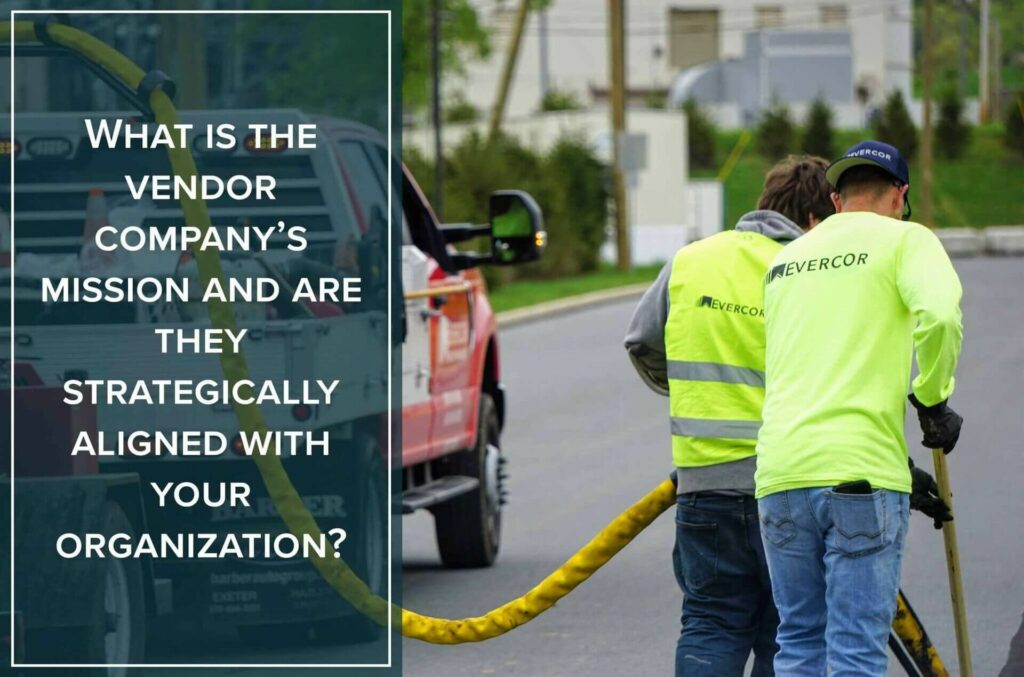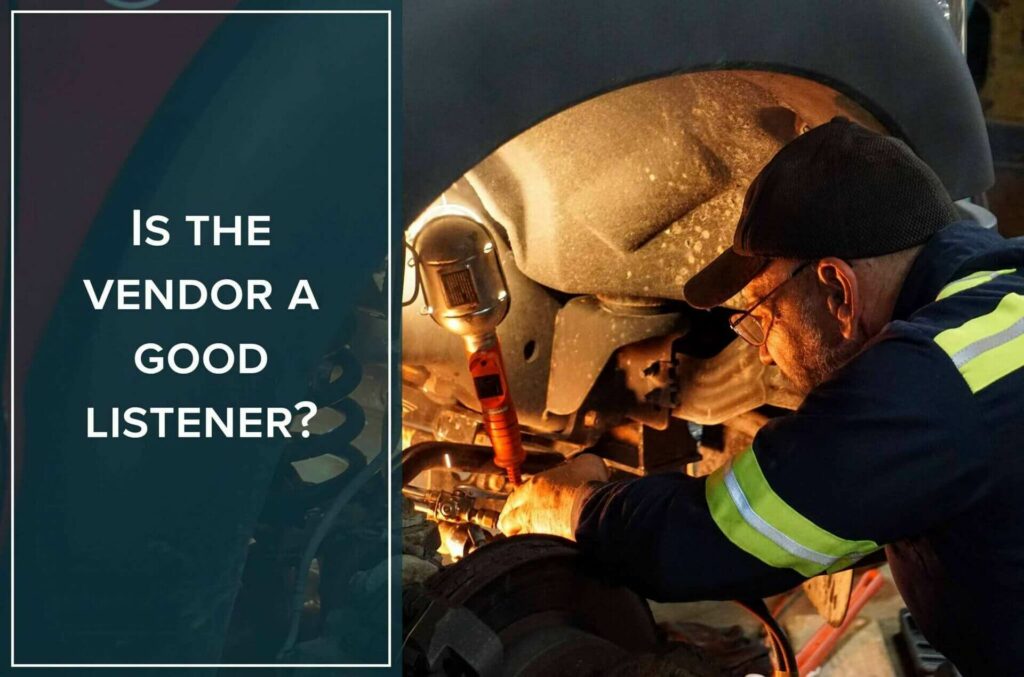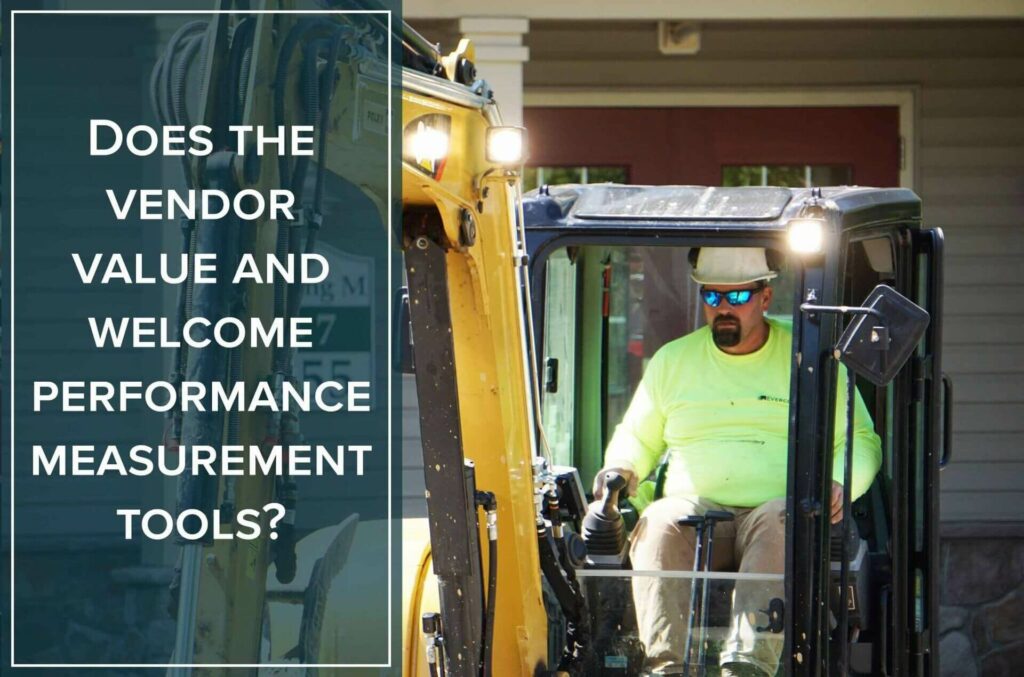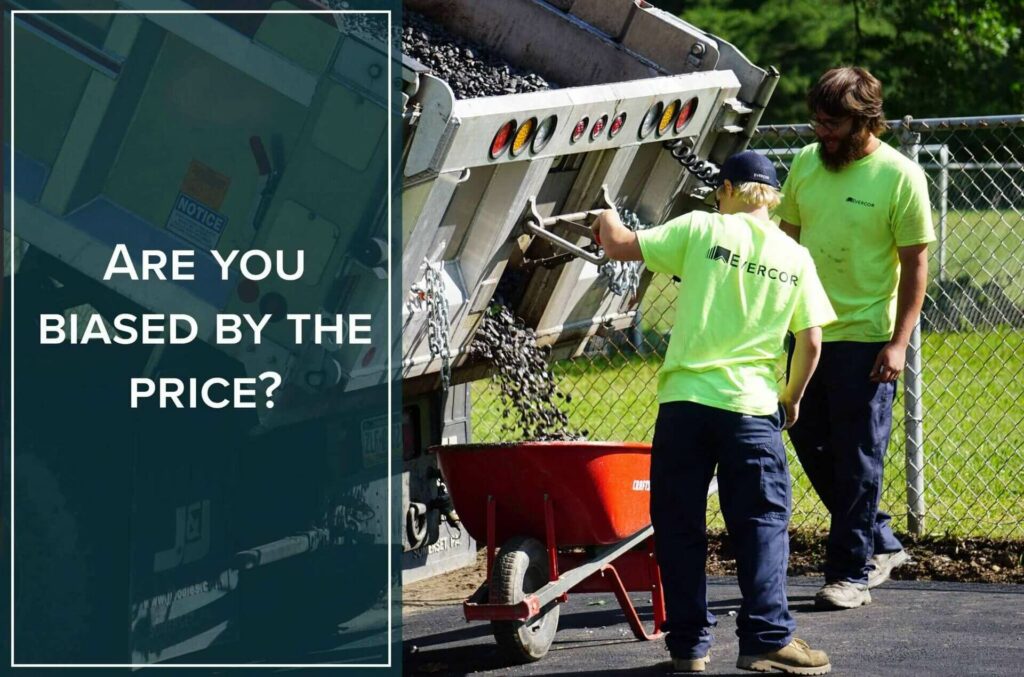This spring, we held an intimate event for the local FM community, dubbed FM Networking @ Night. It was a great opportunity for area leaders in the industry to unwind and talk shop with colleagues, and gain new insight from IFMA Fellow, Alana Dunnoff.
Alana’s presentation sparked a lot of dialog among attendees and we were anxious to continue the conversation with her to cover even more territory. She was gracious enough to share her time with us in this post-event interview.
Our vendors are critical partners in our FM mission, providing us with the skills and services to help us maintain a safe and productive environment for our organizations. Finding the right vendors, just like finding the right internal staff, can be a challenging and daunting process. There are few foundational questions to vet when you are going through the selection process.
What is the vendor company’s mission and are they strategically aligned with your organization? Your vendor companies should be full of people that you would want to hire, they should have a culture and mission that is similar to your own and that you view the world with similar lenses. How can you find out? During the bid evaluation process take the time to visit your vendor at their facility, see how they run their building, and get to know the people who will be serving your account.
Is the vendor a good listener? Our vendors are often good talkers, especially when they are trying to win the business, but can they also listen and truly hear what your needs are as the customer and then craft a solution to implement? One way to find out is to invite them to present their capabilities as part of the vendor selection process. Do they spend the entire time telling you how great they are, or do they focus on you as the customer? You want to select a vendor that is able to ask and understand your pain points, addresses your concerns and spend more time asking questions and listening to your answers.
Does the vendor value and welcome performance measurement tools? We measure the things we care about. Measuring performance and the ability of our vendors to achieve the metrics that are mutually defined is an essential process for success. You should look for vendors that either already have performance measurement processes in place or are open and willing to work with you to define metrics and targets that they are committed to achieving. If a vendor isn’t willing to be measured on the work they are doing, do you really want them to be your vendor?
Do you have objective vendor selection tools? Having bid selection tools like mandatory bid forms and spreadsheets and comparative analysis tools like weighted matrices and score cards, can all be very helpful to ensure you are receiving and then comparing apples to apples information from your vendors. This helps you to take both qualitative and quantitative data into consideration when deciding on who to select.
Are you biased by the price? When we receive proposals from our vendors, we tend to flip to the end and look at their pricing, without reading the approach and technical merit of their proposal. To help you not become biased by price, ask your vendors to provide pricing but to put it into a sealed envelope. Then evaluate your vendor proposals based on a set of technical criteria. Once you have chosen your preferred vendor then you can look at the pricing. You have a better chance of selecting the best vendor if you are not jaded by the initial price. And fees can always be negotiated.
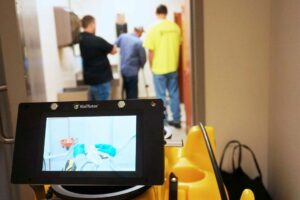
With tech at the forefront of virtually every industry, how is facility management evolving with new technology?
Perhaps the better question is, is there any aspect of FM that isn’t evolving with new technology? That answer would easily be NO. Technology is changing everything. Today, smart building systems allow FMs to manage every aspect of their buildings from their phone, while sitting at the beach. Security systems tell you who is in the building, occupancy sensors tell you where they are in the building, building management systems (BMS/BAS) adjust the temperature and lighting to support where the people are. As technology emerges so does our ability in FM to do our job smarter using technology to streamline processes and provide us with critical information for making smarter decisions. FM and IT will continue to become more enmeshed – time start making friends with your CIO.
With technology involved in practically every aspect of FM, what are the key trends facility managers should have on their radar?
This is not quite my area of expertise – but the technology that folks are talking about these days seems to center around BIM (Building Information Modeling), IoT (internet of things), Security, Security and Security – both physical and cyber; and communications – being able to talk, connect and collaborate with anyone anywhere. Again – time to start making friends with your CIO. (Which for FMs is sometimes challenging- because they don’t exactly make our lives easy LOL)
Stepping into a first FM position, or joining a new company, is complex. Apart from what an employer might provide for onboarding, what type of self-onboarding advice can you provide?
Ask lots of questions, don’t assume you know all the answers (even if you do) and be willing to observe, ask questions, learn, and then share. The last point here is that when you are just getting started there is a universe of information to learn from your actual job responsibilities, to internal processes, to understanding and engaging in the corporate culture of your organization. I tell my students the entire first year of a new job is ALL new; once you get through year one and you have observed, asked questions, and learned then you can start to share your knowledge and perspective. Your ideas and suggestions will be taken more seriously when those around you see that you have been a sponge absorbing everything and that your ideas come from a place of truly understanding the needs of the organization and not because ‘this is how we did it in my other company’. This is not to say that as a new hire you should be silent about your ideas for a year, that won’t serve you well either, but it is important that you spend plenty of time learning.
What are some FM resources, online, in print or other, you absolutely wouldn’t want to do without?
Over the years I have found there is really no better resource than connecting and networking with live people, attending events and conferences has been essential to my ability to find the resources and information I need. Because I will have met someone who has ‘experienced’ the situation that I might be going through right now.
Obviously, attending events isn’t always practical, but the next best thing are virtual communities like being on Linkedin or IFMA’s Engage platform where members can ask questions of the entire membership. I have also used www.facilitiesnet.com when I am trying to research the basics of a topic. Haven’t found an FM book that I can’t live without yet – maybe I have to write one.
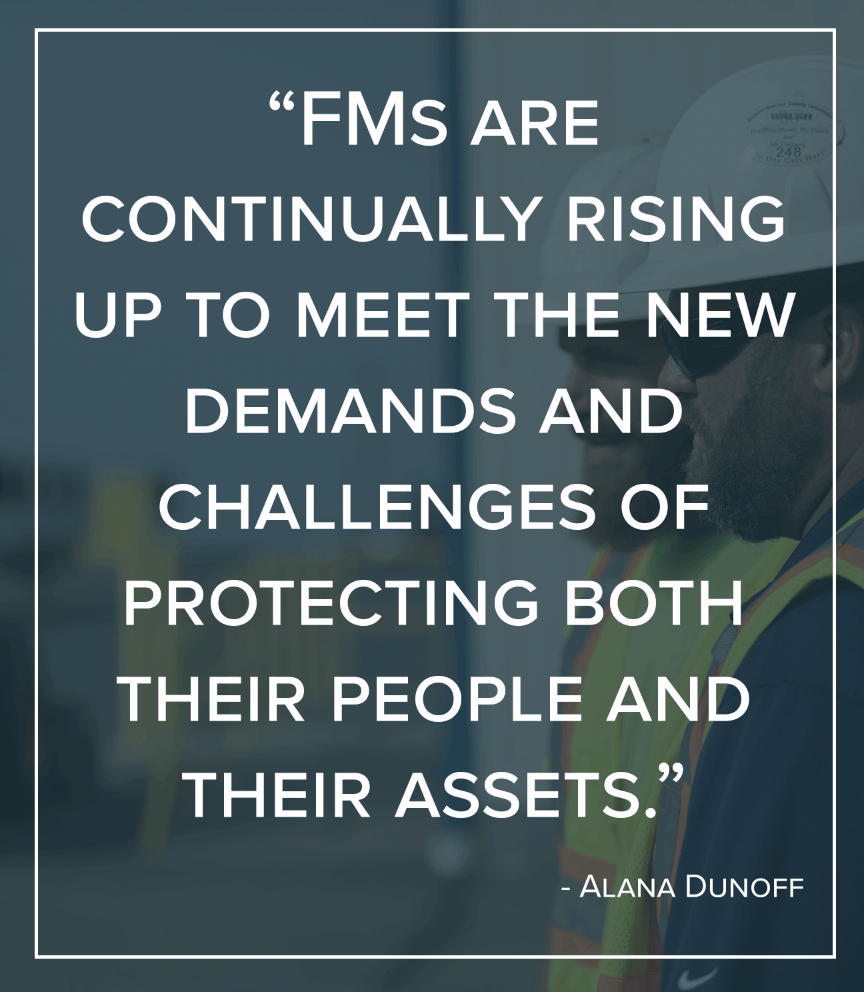
Considering the FM role as keeper of the capital investment, how fundamental is it for the FM to have a “seat at the table”? When doesn’t the FM need to be involved?
Over the past 2 decades the role of the FM has become more and more ‘front in center’ in the eyes of our organizations – each time a headline strikes like a terror attack, anthrax in the mail, sustainability and carbon emissions, the wrath of mother nature or workplace violence, senior leadership turns to their FM staff to understand how ‘prepared’ their organizations are should that situation happen to them. FMs are continually rising up to meet the new demands and challenges of protecting both their people and their assets. The more often FMs have a seat at the table, the better they can understand the needs of the organizations and adapt the facility services to meet those demands. Our buildings, our workplace and spaces are where our organizations house the people and technology that make our organizations profitable. FM is intertwined into the fabric of the organization – we exist because our organization exist, having a seat at the table lets us do our jobs really well.
Many thanks to Alana for her encore insight into a variety of FM topics. You can connect with her on LinkedIn.
